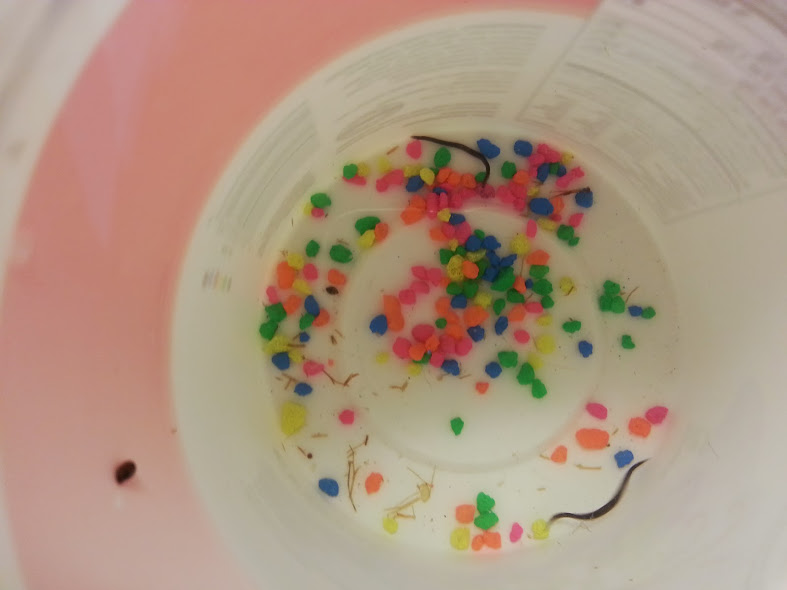octanejunkie
Aquarium Advice Freak
While swapping substrate on our 6G Cyl Tank this weekend I found two of these while sifting and rinsing the old gravel

I'm pretty sure these are leeches, only 2 found and both this size. They attach to things from one end only, swim like snakes *undulating) and can expand and contract. The tank has only smaller fish, so I doubt these could attach to a fish without us noticing rather quickly.
The question is: if these are harmless detritus leeches, are they beneficial to our tank's ecosystem and should we keep them or toss them out?
And, how can we positively ID them?
Thanks in advance

I'm pretty sure these are leeches, only 2 found and both this size. They attach to things from one end only, swim like snakes *undulating) and can expand and contract. The tank has only smaller fish, so I doubt these could attach to a fish without us noticing rather quickly.
The question is: if these are harmless detritus leeches, are they beneficial to our tank's ecosystem and should we keep them or toss them out?
And, how can we positively ID them?
Thanks in advance


